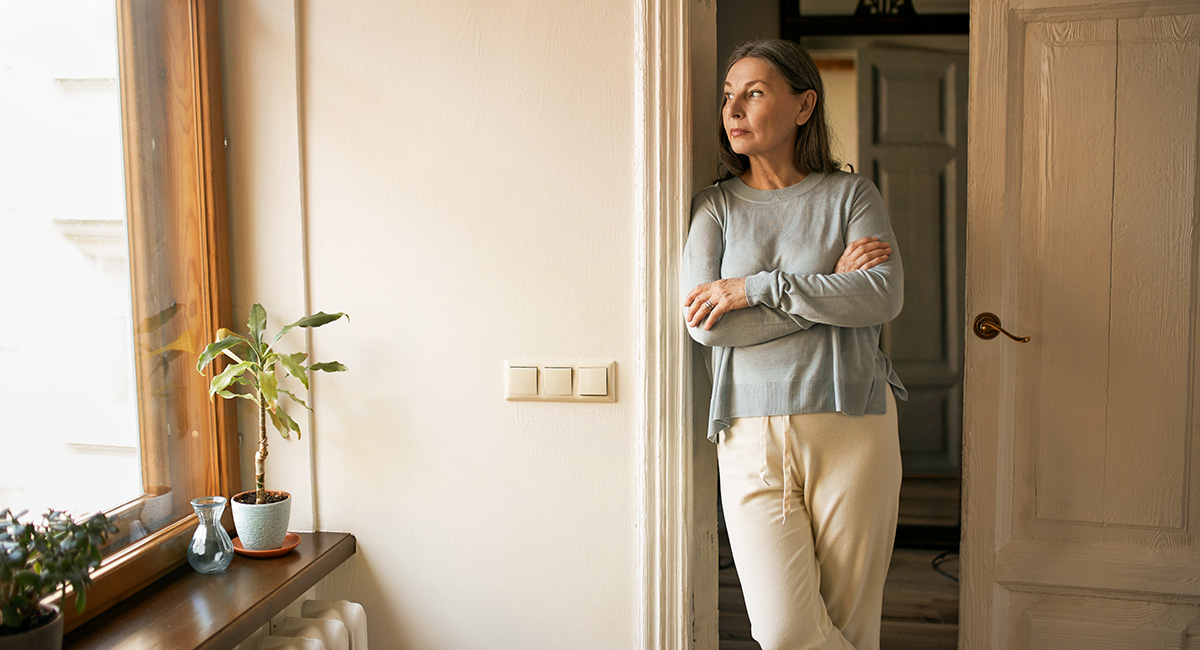“In this decade, skin becomes less supple, and more prone to aging, sun spots and even skin cancers.”—Olivia Carinci, Health Coaching Team Lead, HealthierMe, Remedy Healthcare
Key points
- As we enter our 50s, our skin becomes less supple and more prone to wrinkles, sun spots and skin cancers.
- Typically, our metabolism slows and our cardiovascular risk increases during this decade, while bone density can decrease. This can result in competing priorities when it comes to diet and nutrition.
- Hormonal changes—including menopause and decreasing testosterone—can have a significant impact on the health of both women and men during their 50s.
It’s a truth universally acknowledged—once you hit your 50s, your mind and body change in subtle but significant ways.
You might notice a few more wrinkles, or a few more aches and pains that don’t seem to go away as naturally as they did in your younger years. For many women, it’s a decade of great upheaval too, as the child-bearing years officially end. So, what can we expect from our health in our 50s?

Changes to skin and bones
Even the best of us can fall victim to time spent staring at our reflection in the mirror, noticing tiny lines or pigmentation. It’s an unfortunate fact that as we enter our 50s, our skin begins to visibly age . As Olivia Carinci, Health Coaching Team Lead at HealthierMe™, a program run by Australian Unity partner Remedy Healthcare, explains: “ In this decade, skin integrity declines and becomes more prone to ageing, sun spots and skin cancer."
And it doesn’t end there, she says: “Your skin also becomes less efficient at absorbing vitamin D from the sun, which contributes to bone loss in both men and women.”
For women, a decrease in oestrogen also contributes to a drop in bone density, putting females at increased risk of developing fractures or osteoporosis.
The experienced Dietitian suggests looking at your diet—in consultation with a medical professional—to combat the natural effects of aging. “Nutritionally, you might need to start on vitamin D supplements, or increase your daily dose of natural sunlight,” says Olivia. “Vitamin D levels can be screened with your GP through a simple blood test.”
Competing nutritional priorities
In your 50s, your metabolism slows and cardiovascular risk increases, which makes it a double whammy when you’re told to consume twice the amount of dairy every day and watch your weight. These competing priorities during this life stage can come as a real surprise to people.
Olivia explains the dilemma: “Typically in the 50s, the recommendations for women's dairy intake almost doubles, as the calcium is needed to support bone strength. Some dairy products can be high in fat, so if you're considering your cardiovascular risk as well, your cardiologist might be saying to cut out the dairy but then your GP is telling you to eat more for bone health. The advice I would typically give to people is that it's all about finding your balance.”
Olivia’s tip is to look for a dairy product with about 300 milligrams of calcium per serve, as this count as one serve of your daily requirements. "If you're avoiding lactose, you can still obtain calcium from lactose free products, just be sure to choose good quality ‘calcium fortified’ products," she suggests.
“Dairy products are a nutritionally complete, healthy whole food source. You can choose a low-fat dairy option or a dairy alternative, like soy or almond milk, which are naturally lower in saturated fat if you prefer.”

Dealing with hormonal havoc
For women, the big biological event of the decade is menopause, which happens, on average, at 51 years of age. “The Change” can bring on symptoms including muscle loss, weight gain, skin changes (such as dryness and loss of elasticity), vaginal dryness, and hair growth or loss. As oestrogen levels drop, women also tend to gain weight around their belly. These physical changes can trigger other problems, such as mental health issues or sexual difficulties, which can affect your wellbeing.
Men aren’t immune to hormonal changes either, says Radeyan Sazzad, Manager—Health Management at Australian Unity.
“Testosterone starts to reduce and, while this generally occurs over time, it can be more prevalent in your 50s. It happens in both males and females, but for males it can have a particular impact on your sex drive, mood and muscle mass.”
More pressing health issues
While we should keep our internal radar scanning for health problems throughout our life, the need to proactively check for, and manage, conditions becomes more important as we enter our 50s.
Radeyan says: “People should be aware of what is going on with their health, because doing so now will really help you in the future. Get all the screening tests recommended by your GP done.” These include cardiovascular, cervical and breast cancer, and bowel screenings.
According to Radeyan, having regular tests is a no-brainer. “It means you're doing everything you can to catch things early before they progress to serious disease, or it makes you aware of what you might be at risk of. You can then instigate changes with your healthcare team to ease potential suffering in your 60s and beyond.”
Even though your 50s can throw a few curveballs on the health front, there’s so much you can do to stay in tip-top shape. Be proactive, and start to tweak and change your diet and lifestyle. Radeyan’s final piece of advice? “Really make sure that you are taking care of yourself.”

Disclaimer:
Information provided in this article is not medical advice and you should consult with your healthcare practitioner. Australian Unity accepts no responsibility for the accuracy of any of the opinions, advice, representations or information contained in this publication. Readers should rely on their own advice and enquiries in making decisions affecting their own health, wellbeing or interest.


